Presenting: The Better India’s Best of 2020 – Heroes of Humanity
We celebrate these heroes of humanity, who have shown through their unrelenting efforts and collaborative spirit that it is never too late to rise and fight for our less privileged brothers and sisters. #TBIChangemakers2020 #HeroesofHumanity
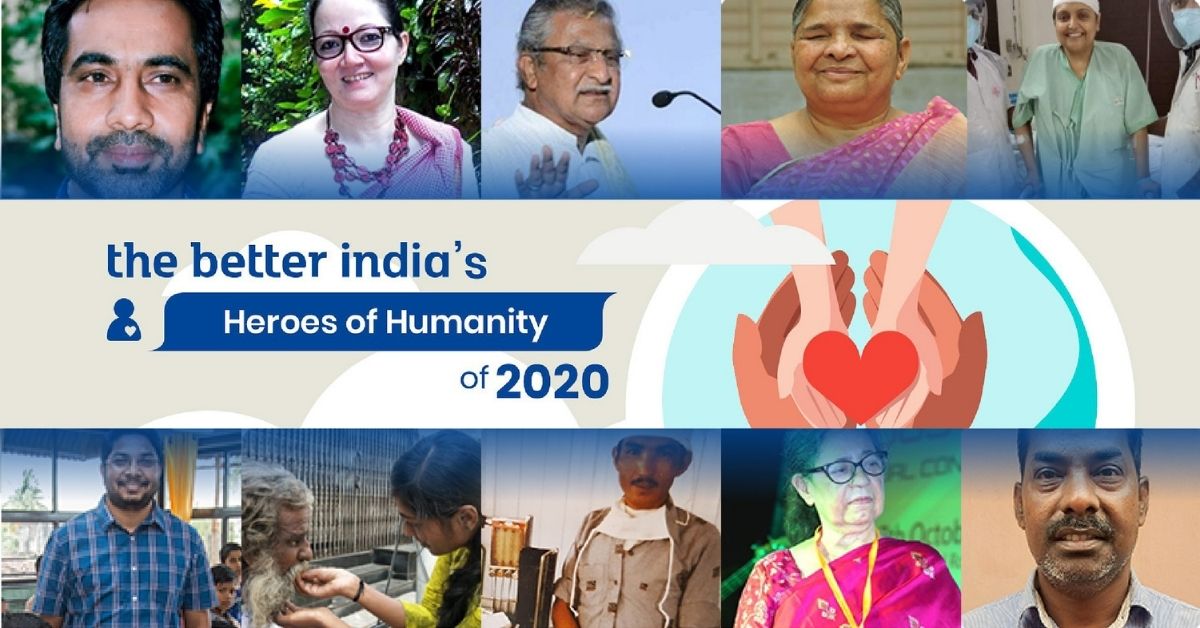
This article is a part of The Better India’s ‘Best of 2020’ — A list of 50 awesome changemakers recognised and honoured by The Better India this year. This is a celebration of remarkable people who exhibited courage, grit, passion, innovation, compassion and above all else, humanity. Find out all about them here.
In one of the most turbulent years in recent memory indelibly marked by a deadly virus, death, loss and tragedy – it may seem like inspiration is in short supply. While we acknowledge and respect those who have lost something this year, it would be fair to argue that many of us also found succour in the incredible stories of people striving to make the lives of their fellow citizens better. Reading these stories in 2020 gives us genuine hope. India’s ability to make us hope even in our worst moments is what has kept many of us sane.
As the year comes to a close, The Better India (TBI) would like to celebrate these heroes of humanity, who have shown through their unrelenting efforts and collaborative spirit that it is never too late to rise and fight for our less privileged brothers and sisters.
Here are The Better India’s 10 amazing Heroes of Humanity, 2020.
1. Muktaben Dagli
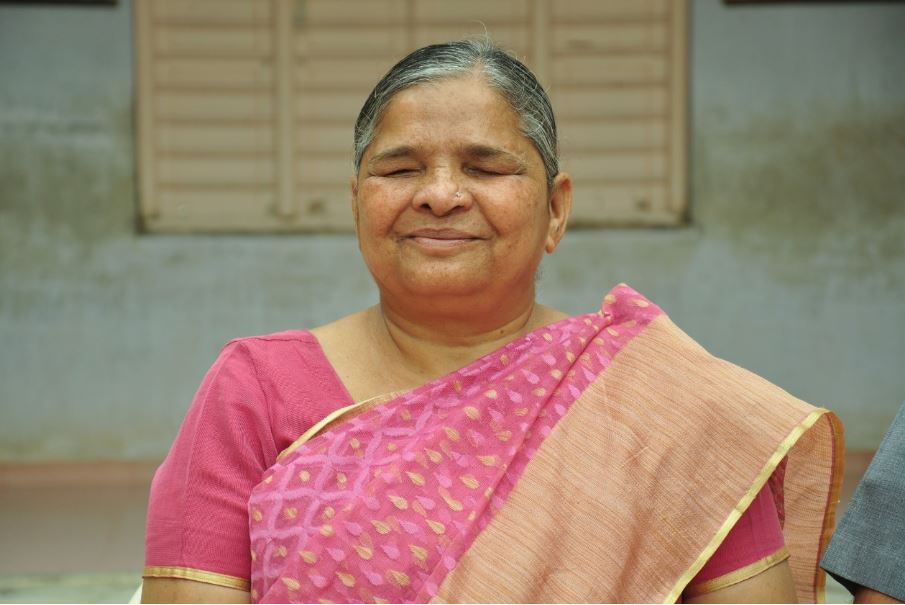
In 1995, Muktaben Dagli, who lost her vision at the age of seven because of meningitis, started the Pragnachakshu Mahila Seva Kunj (PMSK) with her husband. It is a non-profit organisation in Surendranagar, Gujarat, which provides education, food, accommodation to visually impaired girls. So far, the 58-year-old has shaped the future of around 200 girls. Besides, she has also undertaken the responsibility of taking care of 30 people with various disabilities and 25 elderly abandoned by their families.
The greatest source of satisfaction for Muktaben is seeing the girls in her care receive an education, find suitable partners in marriage and gainful employment. “Society considers our blind girls a burden on their families, but when they find the strength to stand on their own two feet with our assistance, it gives me immense happiness,” says the Padma Shri awardee, speaking to The Better India.
2. Dr. Leela Joshi
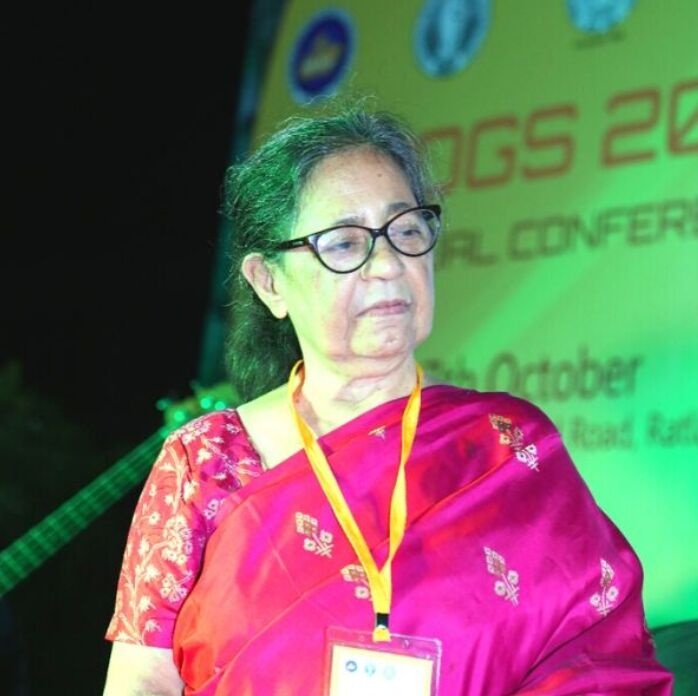
After retiring in 1997 as the Chief Medical Officer in Railways, Dr. Leela devoted over two decades of her life in correcting anaemia and undernutrition in tribal women (especially the pregnant ones) and children of Ratlam district, Madhya Pradesh. Through her NGO, Shri Sewa Sanstha (SSS), Dr Leela has been instrumental in reducing the overall Maternal Mortality Rate (MMR) in the district.
“I also began writing about my own experiences, particularly trying to answer why Ratlam district has been unable to eradicate anaemia despite efforts by the government, NGOs and medical experts. In my writings, I have also offered concrete solutions about what more can be done. However, what has always given me the most satisfaction is seeing tribal girls and women in a critical condition recover their health thanks to our efforts,” she says.
3. Shabnam Ramaswamy
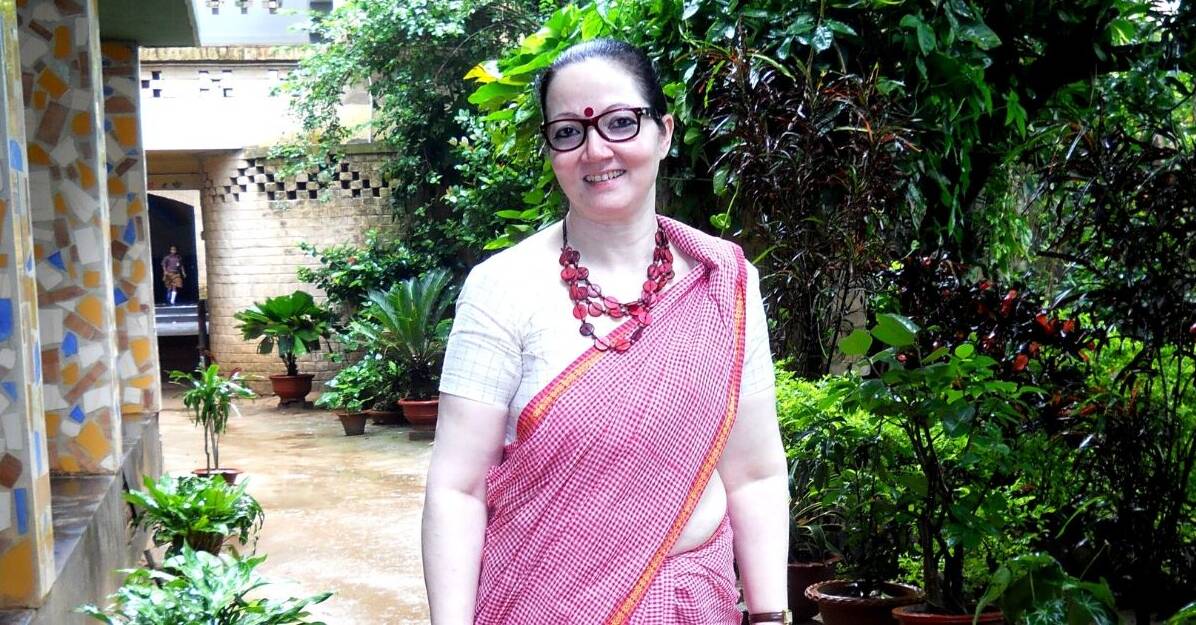
A survivor of domestic violence, this incredible sexagenarian has become a beacon of hope for thousands in the remote hamlets of Murshidabad, West Bengal. She is today the guardian angel for over 1,400 women from impoverished families, empowering them through the traditional embroidery craft of Kantha. She also manages two global standard schools, educating over 1,300 children with limited access to a decent education otherwise.
“Seeing the helplessness of their families made me seriously question my own privilege. As a result of the pandemic, our schools and the women’s cooperative was shut down. In response, I wrote to several friends and raised about Rs 40 lakh. We used that money to distribute dry rations with cash to these families from May to July, following which we opened a roadside restaurant for them. We fought to ensure these workers and their families were treated with dignity,” she recalls.
“After all, what is success at the end of the day if we can’t make a few lives breath easier? It’s the hard work, perseverance and undying spirit of the underprivileged that always inspires me to do more,” adds Shabnam.
4. Rambhau Ingole
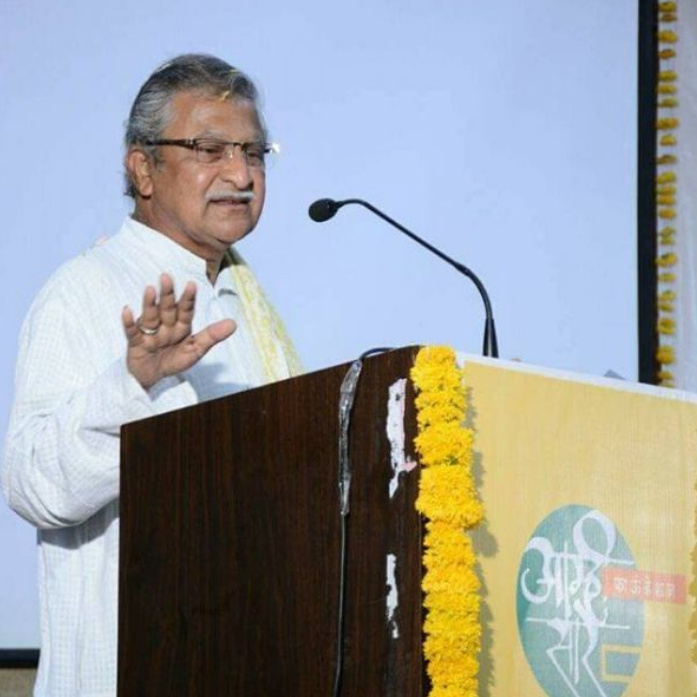
In the last 30 odd years, Nagpur-based social activist Rambhau Ingole has rescued many children of sex workers and given them a new lease of life. After overcoming seemingly insurmountable odds, in 1992, he registered his organisation, ‘Amrapali Utkarsh Sangh’ (AUS), to provide food, shelter, healthcare and education for these children. The stigma attached to these children was so deep-rooted that Ingole had to change houses seven times before he built a residential school for them in 2007.
The school has catered to hundreds of students. Once they finish school, Rambhao helps them find a college of their choice. In recent years, Ingole has also started admitting children of migrant stone mine workers, marginalised tribal families and orphans. His students have gone on to become teachers and engineers. Today, the school has 157 children.
“Having said that, the pandemic was particularly rough on us. But during the lockdown, when schools were shut, our students stitched nearly 7,500 face masks that were distributed to the police, sanitation workers and health workers. Online education is difficult in our residential school because of poor network coverage. However, post the lockdown, some of the teachers who stayed back on campus began taking classes once again,” says Rambhao.
“In my 30 plus years, our biggest achievement is changing the attitude of our society to children of sex workers. My second biggest achievement is showing society that children of sex workers can become doctors and engineers,” he adds.
5. Nilanjana Chatterjee
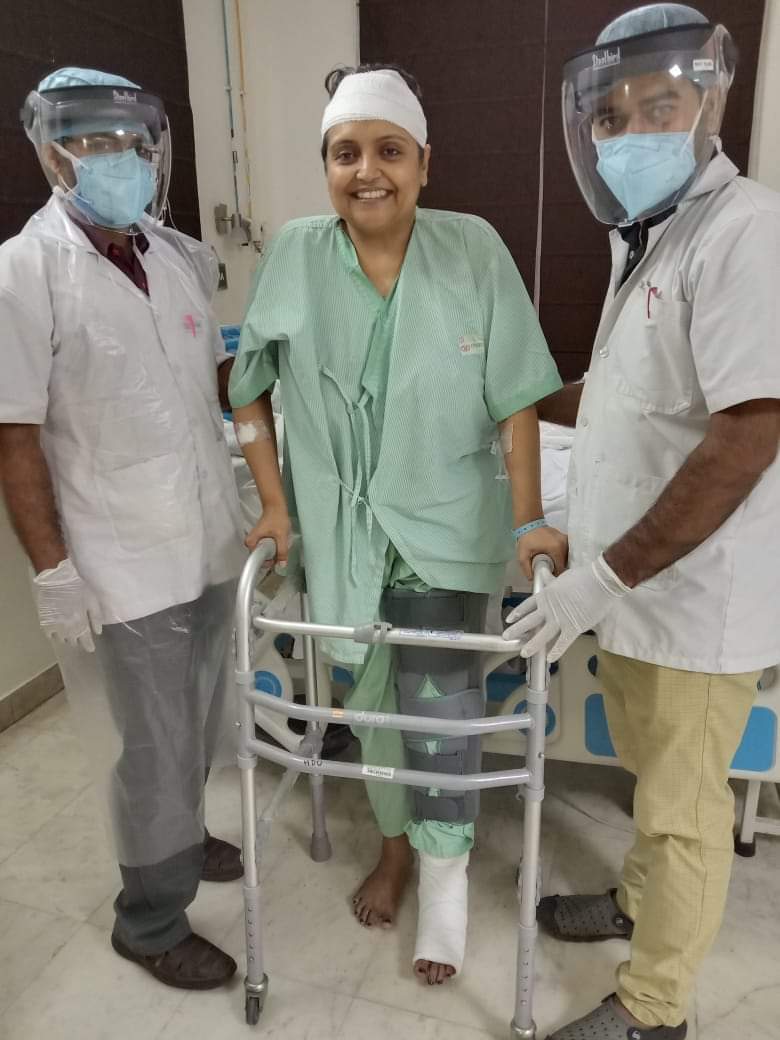
On 5 September, Nilanjana Chatterjee and her husband Deep were returning from a social gathering in Kolkata along with their daughter late in the night when they heard a woman shouting for help from a car parked on the secluded road.
After seeing a woman being pushed out of the car, Nilanjana leapt from her vehicle and ran towards her to help. That’s when the man at the wheel ran over the 47-year-old’s leg, and she suffered fractures in the tibia and fibula of her left leg.
Despite the serious nature of her injury, she does not regret taking that step.
“I recently had my last reconstruction surgery, which will enable me to walk properly soon. I have no regrets in saving that woman. If you are trying to save someone from a physical atrocity, there is always going to be some risk involved. If you only think about the possible risks in these situations, you’ll never be able to rescue a life. I only wish more people would come forward and take such risks to save lives. Meanwhile, I wish the victim well and pray that she enjoys a genuinely healthy and happy future,” she says.
6. Mahesh Jadhav
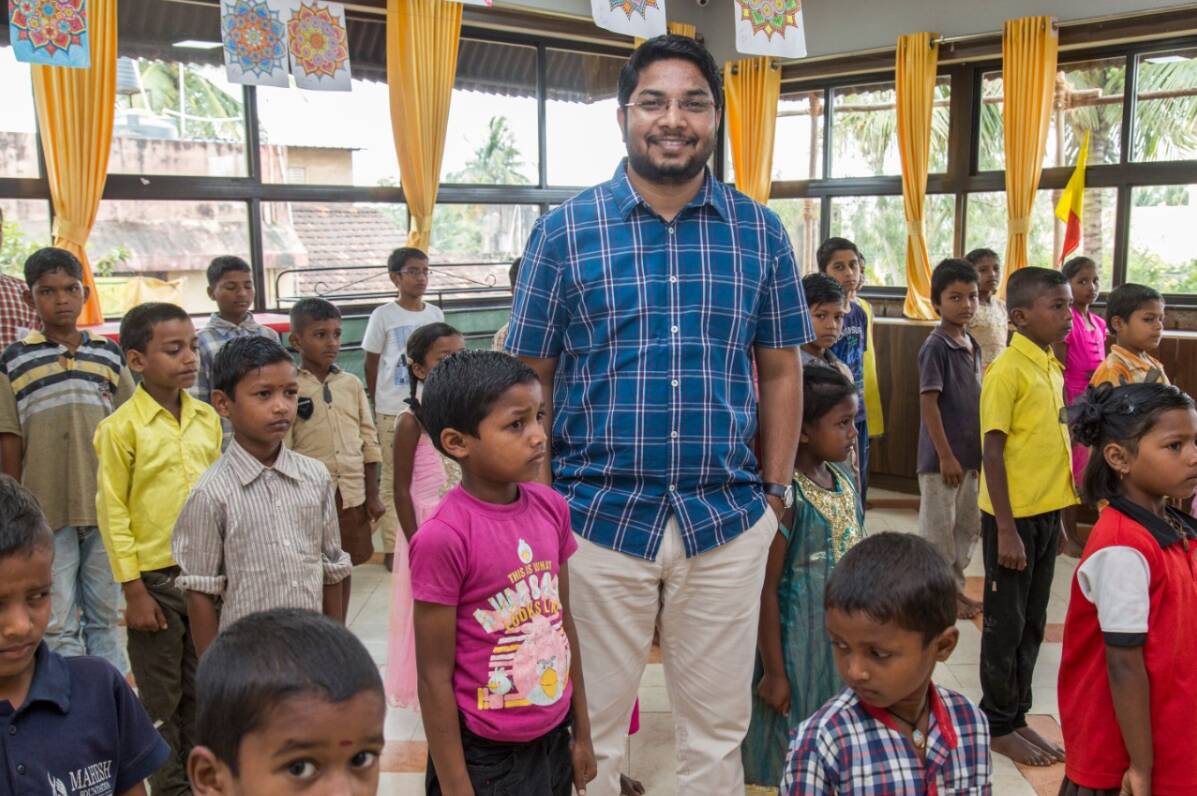
His incredible work has seen him build a hostel and school for medically challenged children, particularly HIV+ orphans in Belagavi, Karnataka. The safe home provides nutrition, healthcare, education, love, and affection to these children.
Thanks to his foundation’s work, these children complete their high school and are ready to pursue either vocational training or attend under graduation. Moreover, as a result of his efforts, more than 38,000 HIV positive individuals, including 2,800 children, registered themselves with the local government hospital so that they can start receiving their treatment. Most, in fear of stigma, do not come for treatment or register their names.
When the lockdown was announced, the government ordered him to shut the hostel down for HIV+ orphans. “We challenged this decision. Once we showed the district collector the precautions we were taking, he permitted us to keep our hostel open. All our hostel and orphanage staff continued to work through the lockdown. Our school didn’t close since all the children were residents there as well. The education department said we could continue running the school, but children from outside were not allowed to join. We have not suffered a single case of COVID-19. The desire of our children to fight for a dignified life despite their condition is what inspires me to work for them every day,” he says.
7. Abhimanyu Das
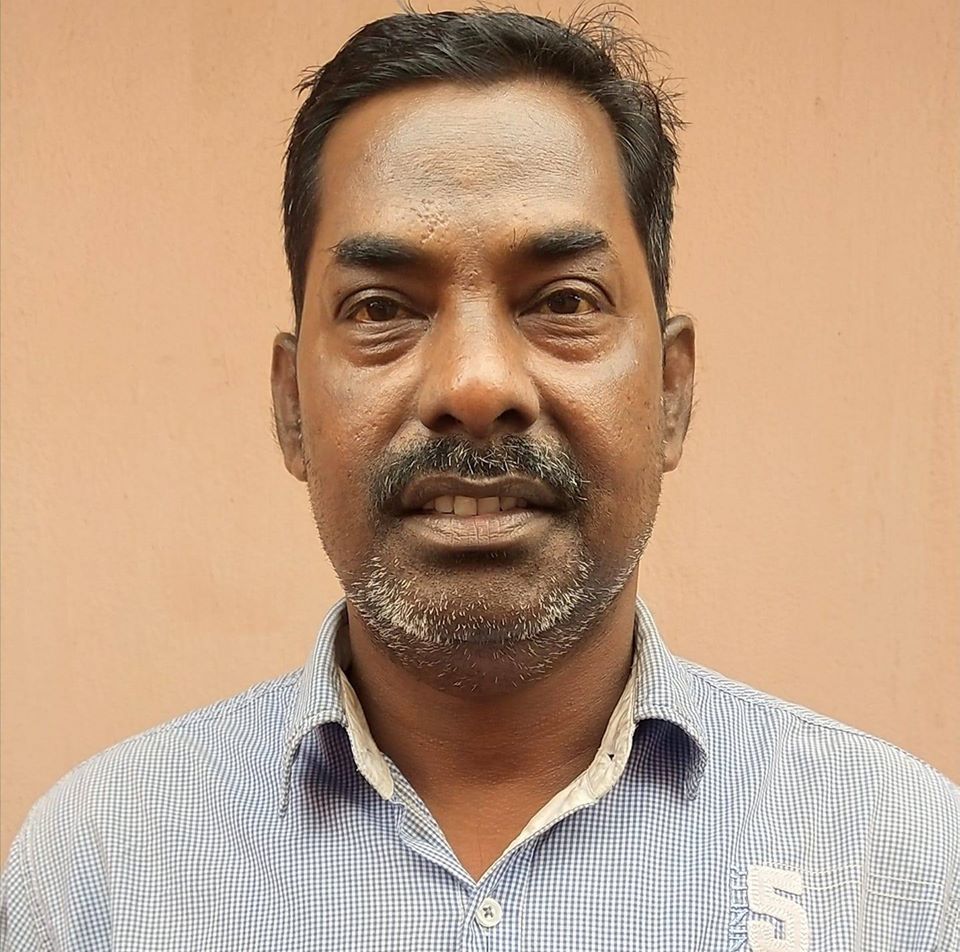
The 49-year-old book-binder from Cuttack helps cremate unclaimed and unattended bodies and also assists impoverished families conduct the last rites of their loved ones. Besides, Das has also been taking care of thousands of cancer patients in the past decade, most of whom are homeless, abandoned or extremely poor.
His decision to assist these vulnerable victims was inspired by the loss of his mother to cancer. Thus far, he has served over 7,000 cancer patients and helped cremate 1,300 bodies.
“The pandemic didn’t put a stop to my work of serving the people. Why should I stop working for them? After all, they have no one to look out for them. Seeing the joy on their faces when I come to help is what encourages me to work for them every day,” he says.
8. Syed Gulab
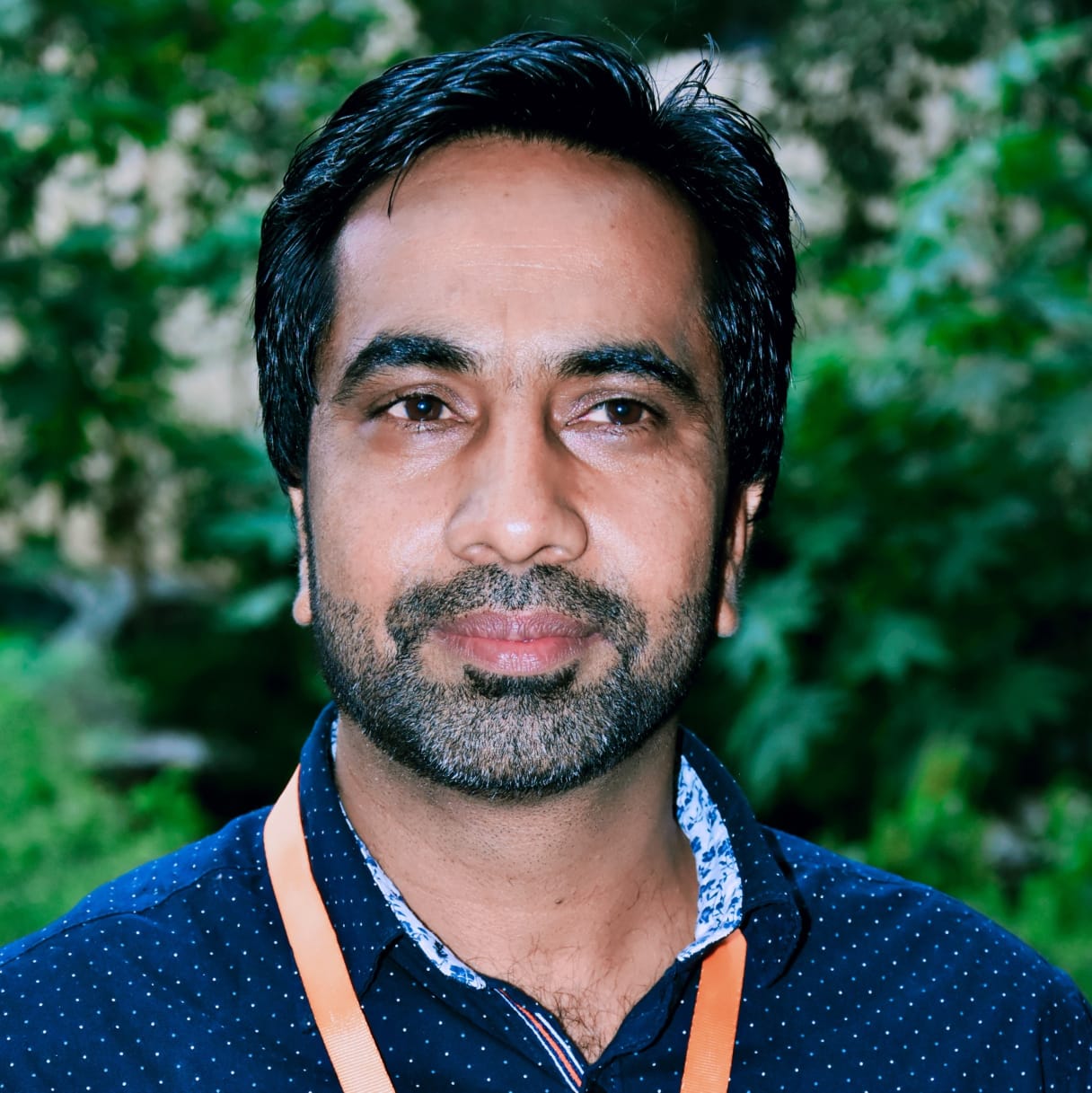
Nearly four years ago, Syed started a free meal service inside the premises of Rajiv Gandhi Institute of TB and Chest Diseases which is adjacent to Indira Gandhi Institute of Child Health (IGICH) in Jayanagar, Bengaluru. The compound where he sets up a stall has four government hospitals including cancer, TB, accident and children.
“Under the Roti Charity Trust I have established, these days we serve free lunch to about 160-180 people, and free breakfast to under 200 people every day outside the hospital. Thanks to the pandemic, these numbers have reduced. Otherwise, we would serve lunch close to 300-350 people every day and breakfast to over 300 people,” he says.
“During the lockdown, we also distributed rations to migrant workers in partnership with Zomato, who gave us rations for 10,000 families, to ensure they don’t have to leave for their home states,” adds Syed.
Hunger is still such a serious problem in this country, and there is not enough focus on it. “If each of us took up the responsibility of feeding one or two people who didn’t have the means to care for themselves, we could rid this country of hunger a lot sooner,” he says.
9. K Manisha
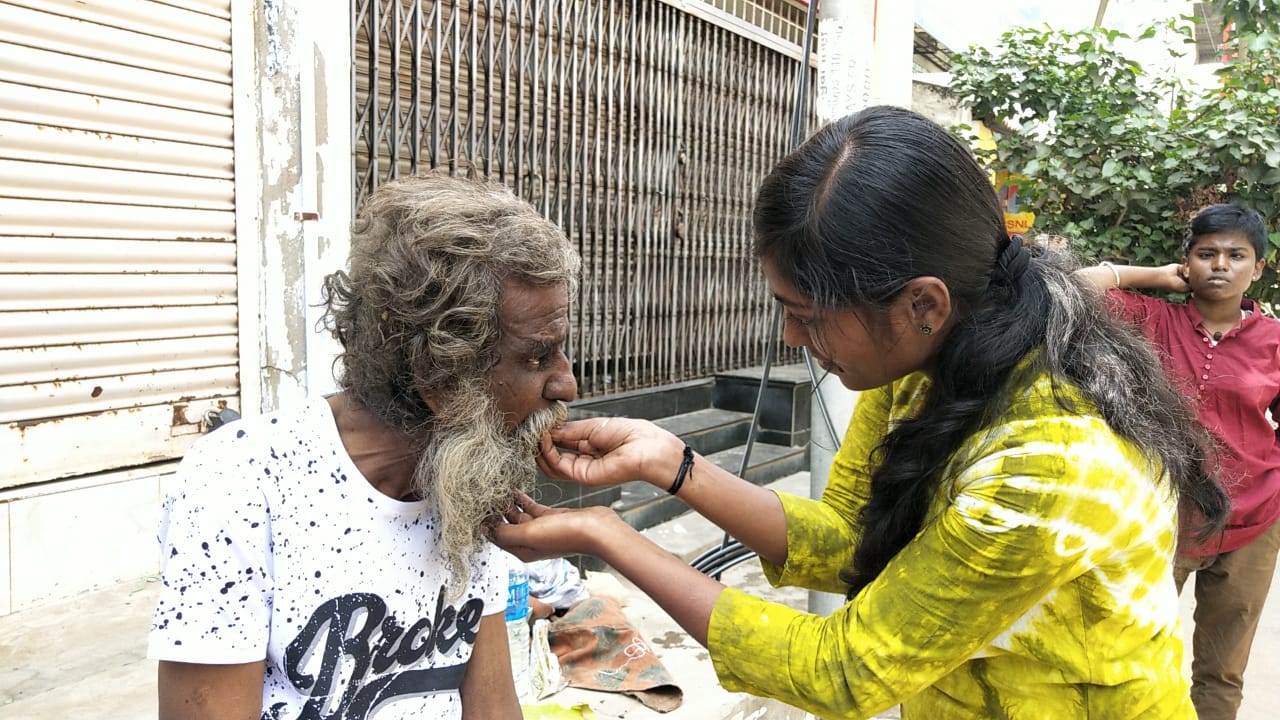
In over two years, K Manisha (23), a lecturer at the Nandha College of Nursing in Tamil Nadu’s Erode district, Tamil Nadu, has tirelessly rescued and rehabilitated nearly 250 beggars, drug addicts, destitutes and those afflicted with terrible diseases.
“During the pandemic, our foundation accommodated 84 people living on the roadside in a government school with assistance from the police commissioner. Of the 84, I have helped 52 of them find jobs, united 10 with their families and the remaining were admitted into nursing homes. During their stay with us, we gave them regular food packets, soap, snacks and masks as well. Meanwhile, I also conducted a survey of those living on the roadside in Erode district and submitted my findings to the concerned authorities,” she says.
“As a young woman, I have encountered numerous hurdles while doing my work. My family doesn’t support my endeavours. However, what keeps me going is the smile on their faces when they see that there is someone who cares for them,” adds Manisha.
10. Dr Tsering Norbu
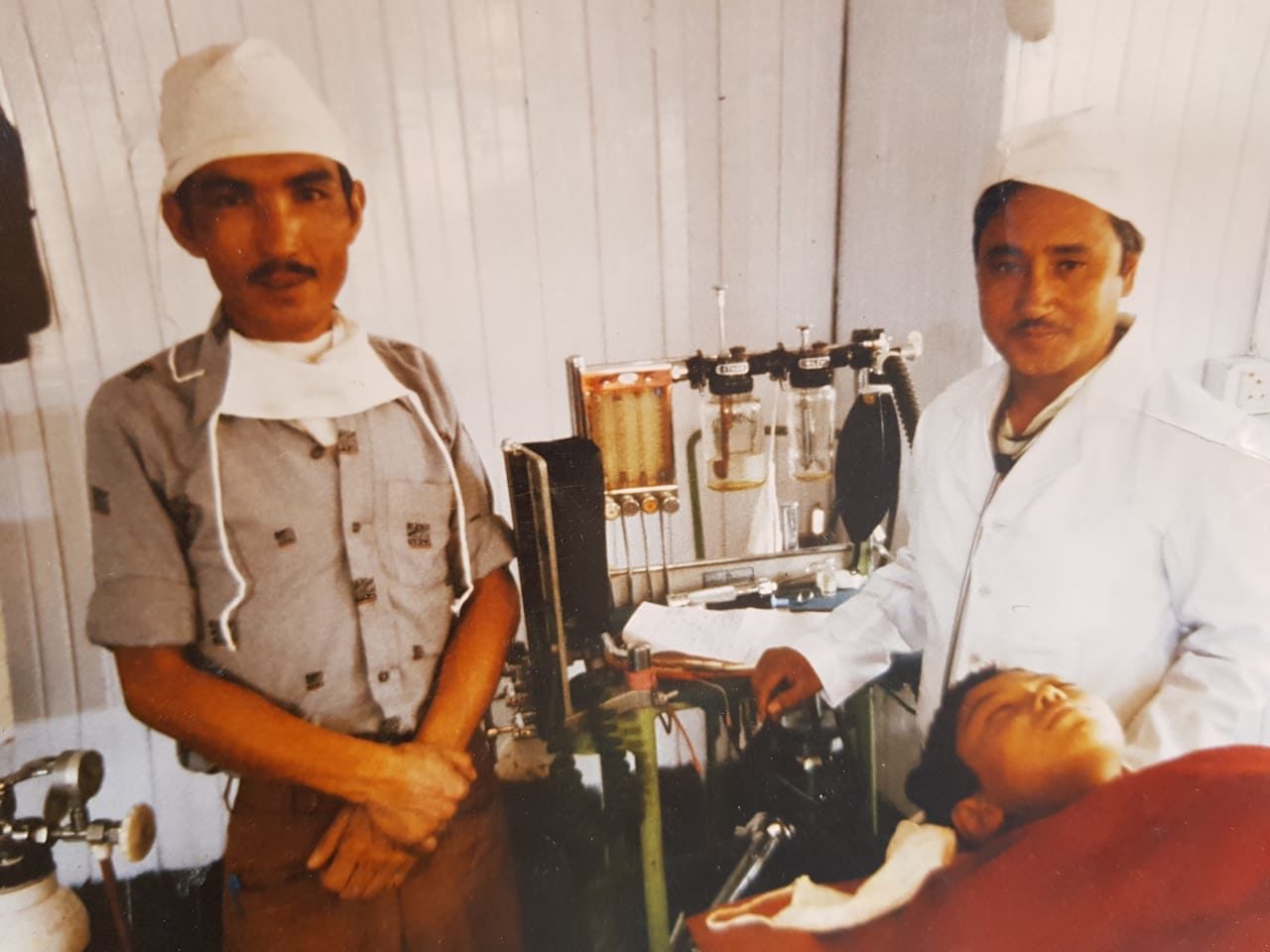
Ask anyone in Leh about Dr Tsering Norbu (Standing on the left above), the first practising surgeon of Ladakh, and they will tell you about how he dedicated his life to serving the people tirelessly. For nearly three decades, this general surgeon conducted more than 10,000 surgeries for a populace that barely had access to the wonders of modern medicine.
“These days, I am retired, although I continue to offer advice to doctors who need it. I began my work at a time when Ladakh had no practising surgeons. I was the only one the region had. With an entire region dependent on me, what more motivation did I need,” he says.
(Edited by Vinayak Hegde)
Like this story? Or have something to share? Write to us: [email protected], or connect with us on Facebook and Twitter.
If you found our stories insightful, informative, or even just enjoyable, we invite you to consider making a voluntary payment to support the work we do at The Better India. Your contribution helps us continue producing quality content that educates, inspires, and drives positive change.
Choose one of the payment options below for your contribution-
By paying for the stories you value, you directly contribute to sustaining our efforts focused on making a difference in the world. Together, let’s ensure that impactful stories continue to be told and shared, enriching lives and communities alike.
Thank you for your support. Here are some frequently asked questions you might find helpful to know why you are contributing?


This story made me
-
97
-
121
-
89
-
167













